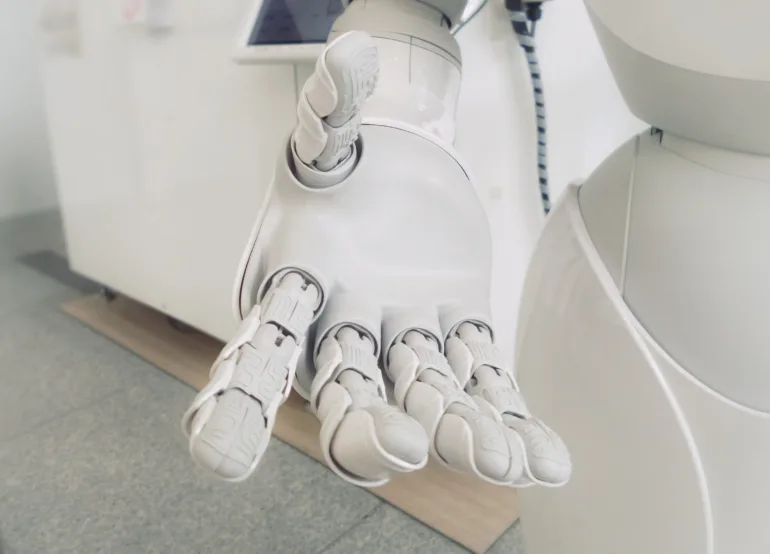TL;DR:
- The industrial sector is excited about the potential of AI and technology to improve efficiency in factories and the manufacturing of self-repairing robots.
- At the Hannover Messe in Germany, the excitement about generative AI dominated conversations among international industrial technology companies.
- HPE, a US information services company, demonstrated a virtual assistant equipped with generative AI capable of operating a robot’s articulated arm.
- HPE has been collaborating with Aleph Alpha, a German start-up, to use language and images to communicate with factory personnel and detect errors in equipment.
- Aleph Alpha’s software tracks the data that led to its decisions, setting it apart from OpenAI’s ChatGPT.
- Heidelberg, another start-up, retains customer data in Europe, a feature that was banned by the Italian Personal Data Protection Authority for ChatGPT.
- Microsoft and Siemens reject the notion that AI will replace humans and cause job losses, instead finding that AI enhances the efficiency of the industrial sector.
Main AI News:
The industrial sector eagerly awaits the transformation brought on by artificial intelligence and technology. The goal is to improve factory efficiency and create robots that are capable of repairing themselves. At the Hannover Messe in Germany, where international industrial technology companies gather, the excitement surrounding generative AI was evident, as it dominated all discussions.
A representative from US information services company HPE demonstrated the capabilities of a virtual assistant equipped with generative AI at the event. The assistant was able to converse with a young employee and operate the articulated arm of a robot. HPE data analyst Tomas Meyer stated that AI can take over the repair process, eliminating the need for factory workers to bring in a qualified expert to the site, thereby solving technical problems with ease.
HPE has teamed up with German start-up Aleph Alpha for a year now, with Aleph Alpha boasting a team of about 50 employees and being one of the leading European competitors to OpenAI’s ChatGPT chatbot. In the industrial setting, language and images are utilized to communicate with factory workers and the software can detect errors or confirm proper installation through images sent by personnel.
According to Meyer, the software used by Aleph Alpha has the added advantage of being able to track the data that led to its decisions, unlike ChatGPT. Although Aleph Alpha has achieved success with 28 million euros raised, it still falls short in comparison to the billions obtained by OpenAI from Microsoft.
Start-up Heidelberg highlights a key feature that sets it apart: retention of customer data in Europe. In fact, the Italian Personal Data Protection Authority banned the use of the ChatGPT bot at the end of March for not respecting European regulations regarding data collection and storage. Alfa’s CEO, Jonas Androulis, calls on Europe to focus on innovation as well as regulation, stating, “The European contribution to artificial intelligence should not be limited to putting up a cookie bar!”
Microsoft and Siemens, working with many customers in industries such as automotive, aerospace, and aviation, do not believe that AI will result in job loss for humans. Instead, CEO of Siemens Digital Industries Software, Antony Himmelgarn, explains that AI improves efficiency by finding solutions to 70% of problems that may have gone unresolved. He emphasizes that AI does not replace human workers, but rather enhances the overall efficiency of the industrial sector.
Conlcusion:
The advancements in artificial Intelligence and technology are set to revolutionize the industrial sector. Companies are eager to implement AI to improve efficiency and manufacturing processes. The Hannover Messe in Germany showcased the potential of generative AI, with US information services company HPE demonstrating a virtual assistant equipped with generative AI capable of operating a robot’s articulated arm.
Companies such as Aleph Alpha and Heidelberg are competing with the well-established ChatGPT chatbot developed by OpenAI, offering unique features such as tracking data that leads to decisions and retaining customer data in Europe. Microsoft and Siemens reject the notion that AI will replace humans and instead highlight its ability to enhance efficiency in the industrial sector.

